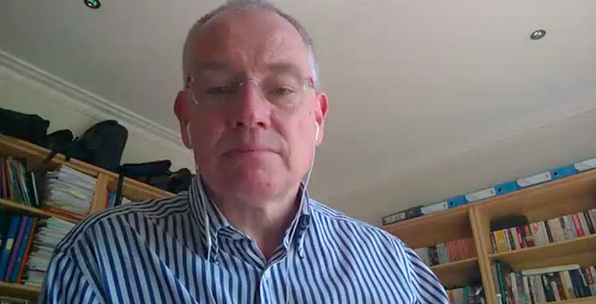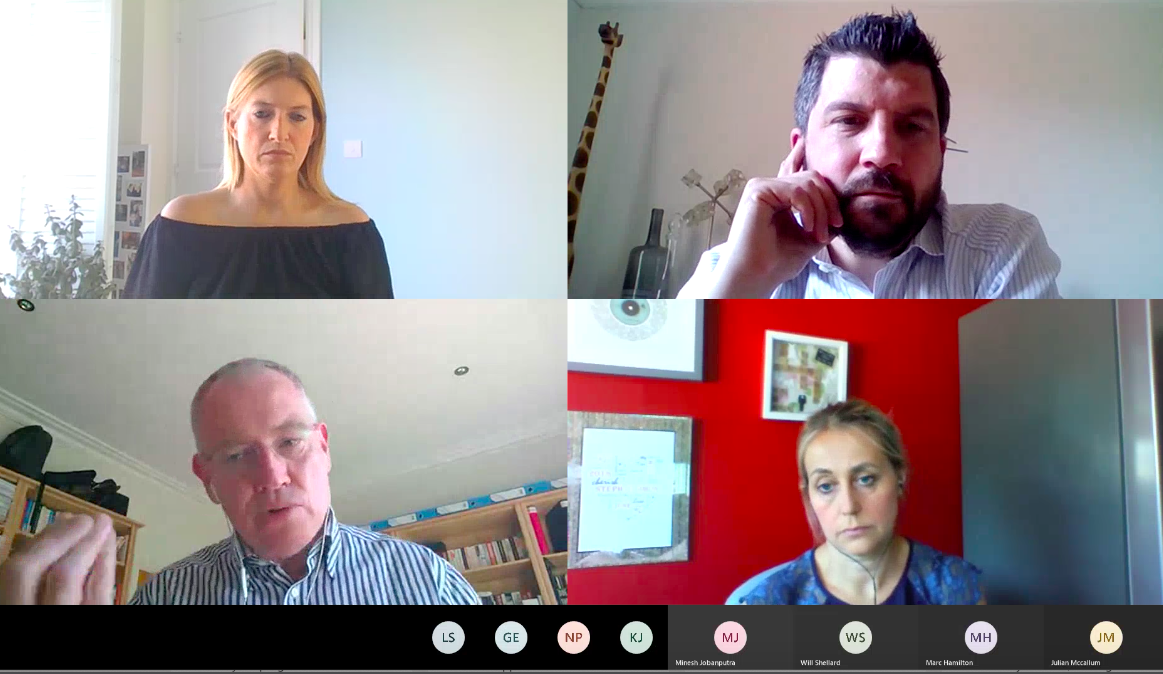Webinar Roundup: HR, People & Recruitment during COVID-19 with Kevin Green
Growing and sustaining a talented team is something that every business should be striving to achieve, but is it a viable option right now when we are in the midst of a global pandemic?
With a wealth of uncertainty surrounding what the post-coronavirus era will look like for businesses, this is a question that will have no doubt left many business leaders scratching their heads.
Never ones to leave a question unanswered, we decided to delve into the depths of this interesting topic as part of our digital roundtable sessions, along with the help of TEDx speaker, best-selling author and HR Business Transformation leader, Kevin Green. With his expert knowledge in both the recruitment and HR industries, we felt there was no-one better to lead this session.
Kevin kicked off the roundtable by discussing the UK economy, the labour market and the impact they’ve experienced as a result of the coronavirus pandemic. Having experienced four separate recessions during this career, Kevin commented that this situation was entirely different in terms of both pace and scale. He explained that due to the unexpected nature of the pandemic and the lack of planning businesses were able to conduct before the lockdown, the economy has taken a heavy blow with a third of the UK population currently out of work.
Kevin went on to praise the Government’s efforts to prop up the jobs market during this time, but he was very candid in his opinion that a high percentage of people who are currently on the furlough scheme will not be taken back by their current employers. By his estimations, this could result in as many as 6m people being unemployed by the end of 2020 and early 2021.

Drawing on his knowledge of the HR industry, Kevin went on to explain the important role that HR has had to play during the pandemic, from the early stages of setting people up to work from home to organising furloughed employees. He explained that because of their proven capabilities during COVID-19, HR professionals will continue to have an integral role to play in helping businesses cope as the crisis continues and particularly as businesses start to consider what their “new normal” will look like.
Certain areas of weakness within organisations, such as poor management capabilities and lack of communication, have been brought to light since the pandemic began. Instead of returning to how things were before, Kevin stated that now is the time for businesses to reflect, reset and refocus their priorities, in order to create a stronger and more people-centric workplace overall.
Kevin added that HR teams now have the opportunity to get in front of their leadership teams and executives to start creating a blueprint for redesigning their organisations and improving their approach to how they work. The way in which many organisations chose to work previously may not be as convenient or relevant now and it’s vital that leaders enlist the help of their HR teams to consider how they will manage this to ensure employee retention and attraction.
With so many people potentially facing redundancy soon and skills gaps continuing to widen, Kevin explained that attracting talented professionals into an organisation will be easier than ever before. But the process will only be successful if businesses react quickly and are clear about the talent they need going forward. HR teams again will be integral in helping leaders determine what skillsets and experience are most valuable to the company under their new organisational redesign.
Once the roundtable was opened up to all attendees, many agreed that their organisations are definitely entering a recovery mode and considering ways in which they can make their employees, no matter where they are working, feel valued and motivated.
Kevin added that “Communication is key- but as the crisis has gone on, listening has become more important than talking. Managers need to make sure they listen to their staff, then adapt their approach and respond. This isn’t rocket science- it’s about finding a way to get your employees to tell you how they’re feeling right now, then spending the time to see if you can support or help.”
Another attendee discussed that while she agreed with Kevin that many organisational weaknesses have come to light in recent times, she had also seen many leaders unexpectedly excel in her organisation since the lockdown had come into play.
She felt that flexible working was the catalyst for this change. She went onto explain that flexible working had been something her organisation had tried to implement previously, but with little success due to concerns over technological issues. However, the pandemic has proven that it can work successfully and they now intend to utilise it more to harness these new and positive managerial behaviours.
Kevin added that because of the lockdown, more people than ever before will be interested in roles that offer remote and flexible working from now on. However, according to a recent survey, only 11% of jobs openly offer this option currently. So, it can be extremely beneficial for organisations looking to attract and retain fresh talent to start offering flexible working options and be clear and upfront about them when they advertise their roles.
With possible redundancies on the horizon, it can seem that things are a little doom and gloom for many of us right now. However, there is certainly light at the end of the tunnel for organisations who are willing the change their approach and adapt to new ways of working in the post-Covid-19 era.
If you’d like to take part in our next digital roundtable, just fill out the form on our networking events page and a member of our team will get back to you.
17th June
Events
Related insight
Related News
Looking to
transform?
Quicklinks

Address
Deltra Group
52-54 Gracechurch St
London
EC3V 0EH
Contact
+44 (0)207 375 9500
info@deltragroup.com



